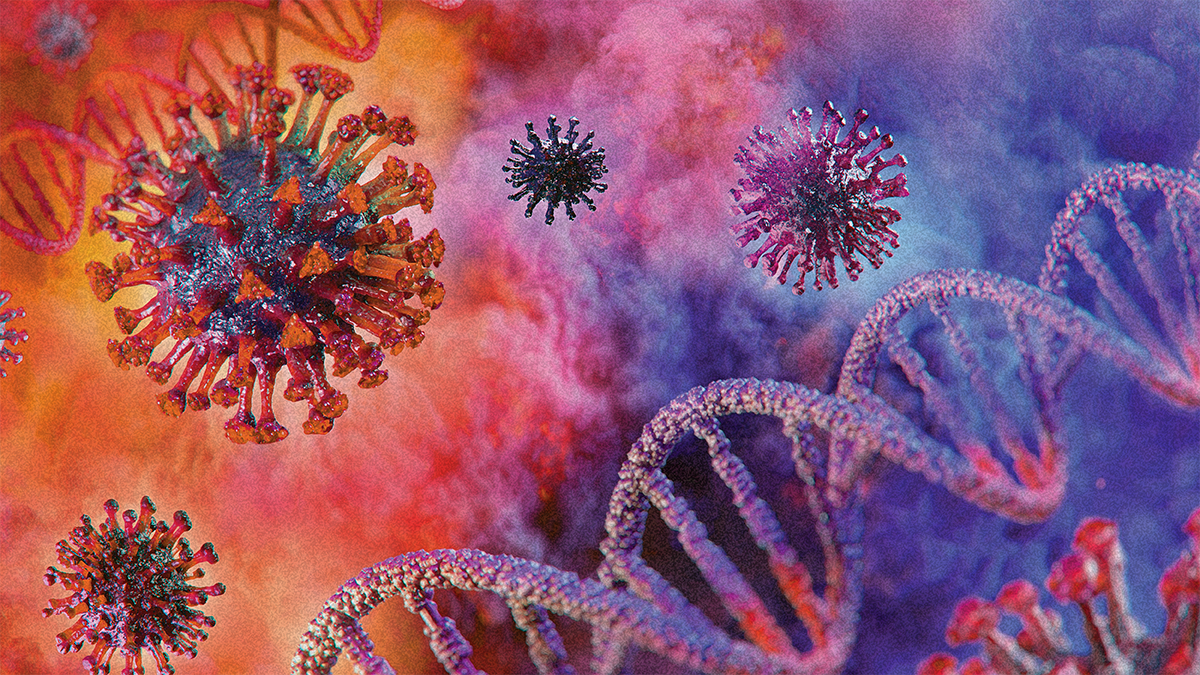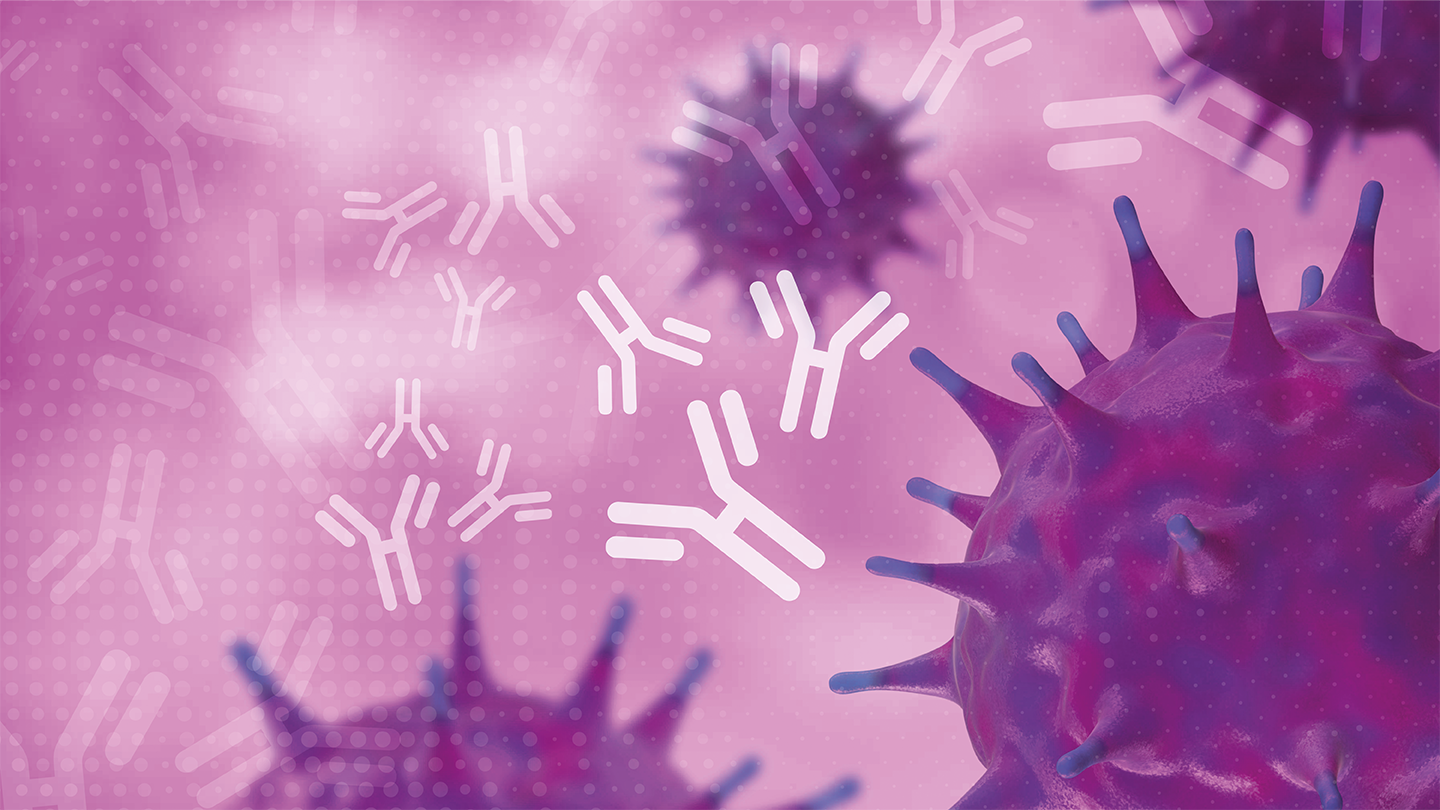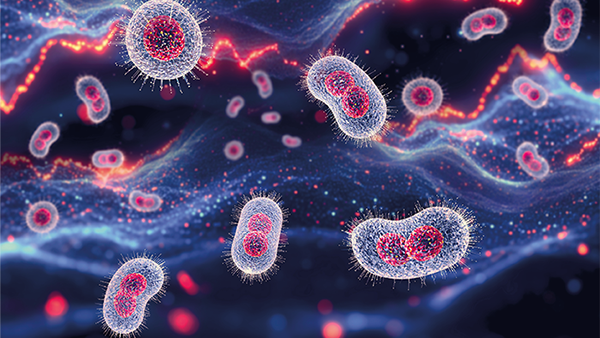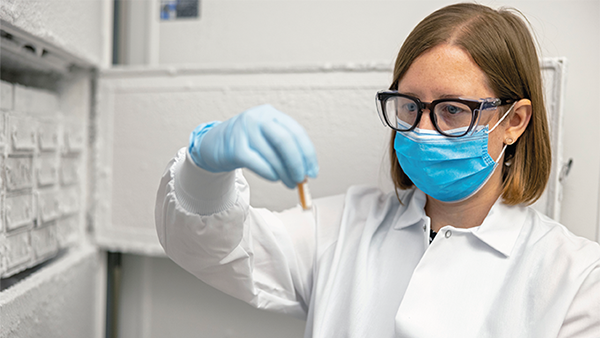Secrets of the Super Dodgers
Could a genetic advantage explain why some people don’t get sick from SARS-CoV-2?
According to the latest federal estimates, roughly three-quarters of people in the US have had COVID-19 at least once. However, for those with asymptomatic infection, it’s possible they might not realize it. In fact, estimates suggest that between 20 and 45 percent of people who are infected by SARS-CoV-2 do not experience obvious symptoms, such as coughing, a sore throat, or fever.
These stats beg the question: why do some people not get sick from SARS-CoV-2? Though there is no definitive answer, research has generated numerous hypotheses, including age, genetics, environment, and COVID-19 vaccination. However, a new study led by UC San Francisco researchers believe that a gene mutation may be the culprit. The findings, published in Nature, focus on human leukocyte antigen (HLA).
Studying almost 30,000 participants, they found that asymptomatic individuals were more likely to carry the HLA-B*15:01 allele than symptomatic participants; specifically, 20 percent of individuals who remained asymptomatic after infection carried HLA-B*15:01, compared with only nine percent of those who experienced symptoms. And those who carried two copies of the allele were over eight times more likely to remain asymptomatic than those with other genotypes.
Upon further investigation, people with HLA-B*15:01 had T cells that were poised to attack SARS-CoV-2 – facilitating a rapid immune response that stops people from developing symptoms. “If you have an army that’s able to recognize the enemy early, that’s a huge advantage,” explained Jill Hollenbach, lead author and a professor of neurology at UC San Francisco. “It’s like having soldiers that are prepared for battle and already know what to look for, and that these are the bad guys.”
Understanding this potential genetic advantage could have a big impact on future outbreak response. “By studying their immune response, this might enable us to identify new ways of promoting immune protection against SARS-CoV-2 that could be used in future development of vaccines or drugs,” said Stephanie Gras, a professor and laboratory head at La Trobe University.





